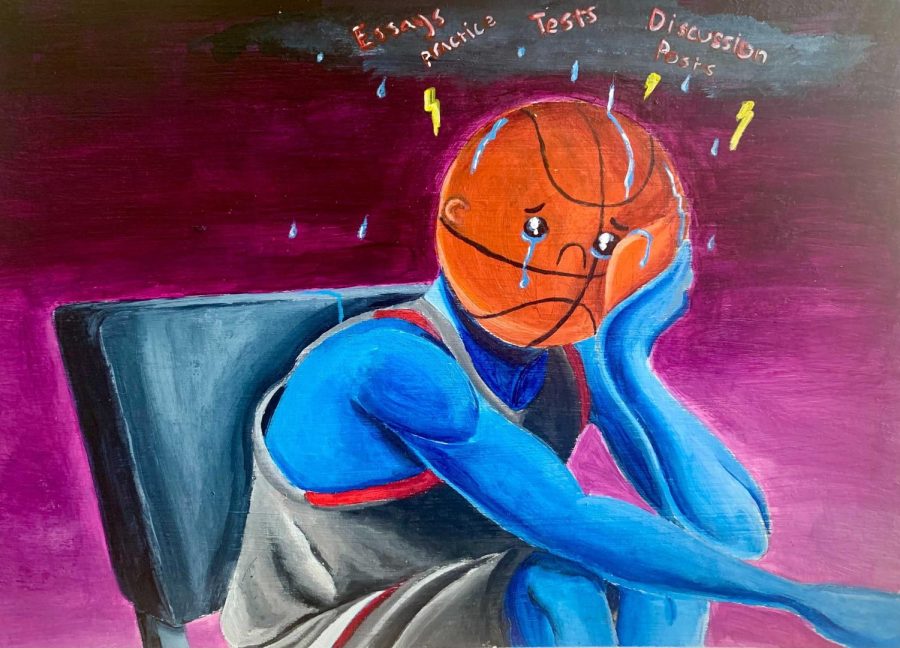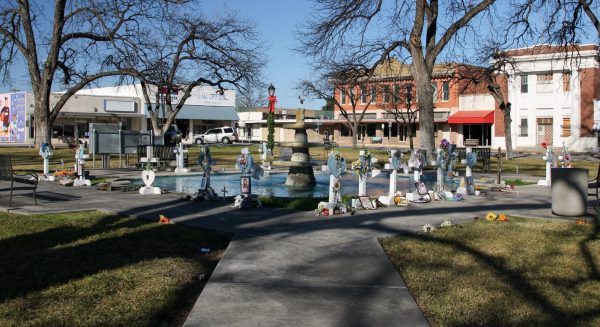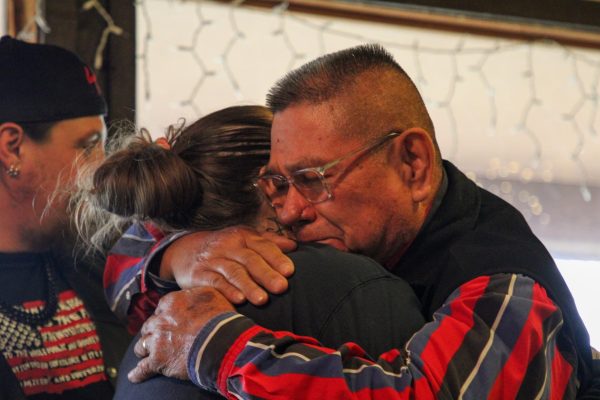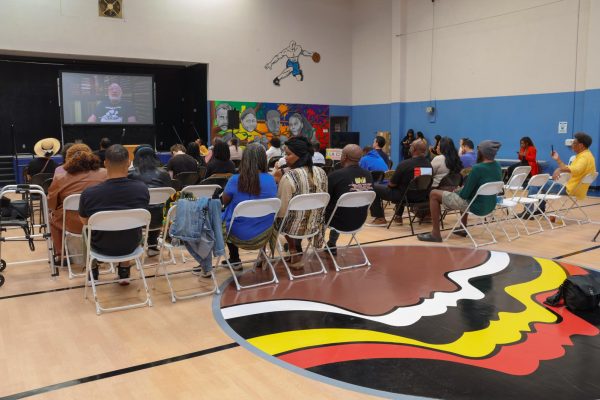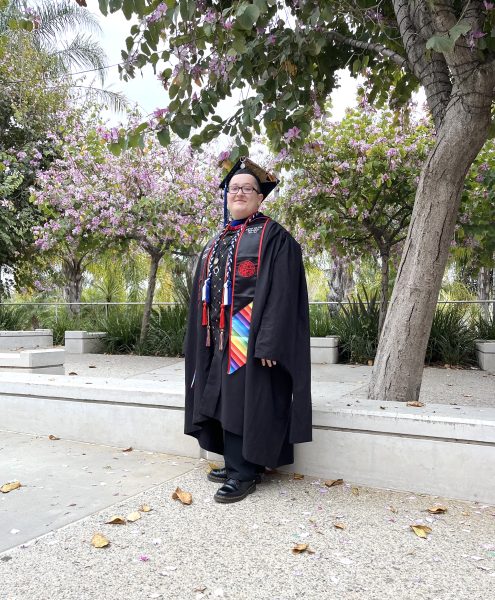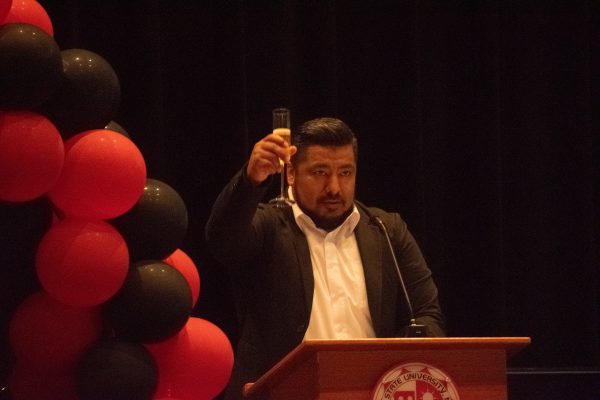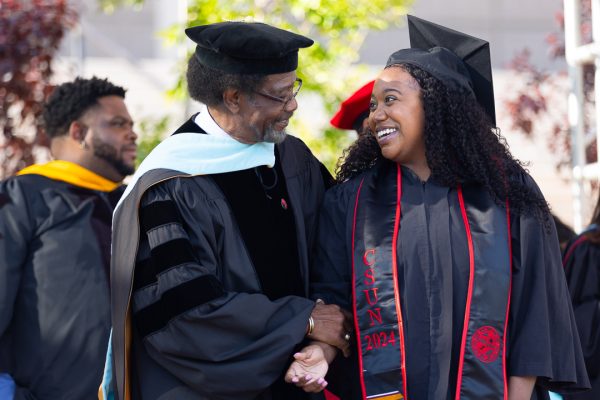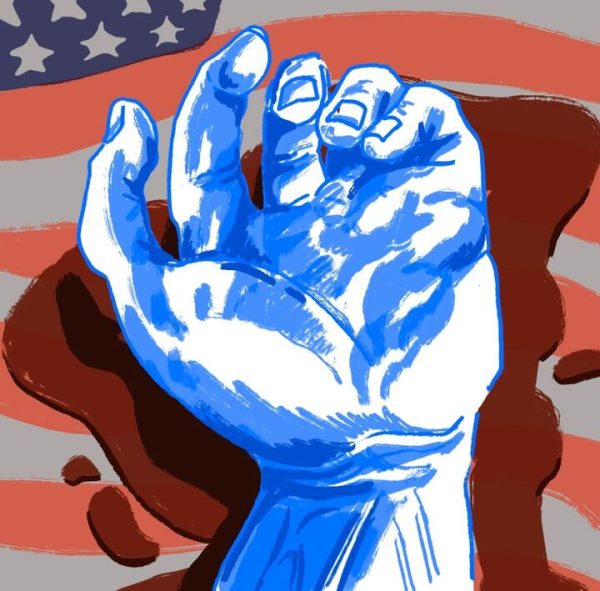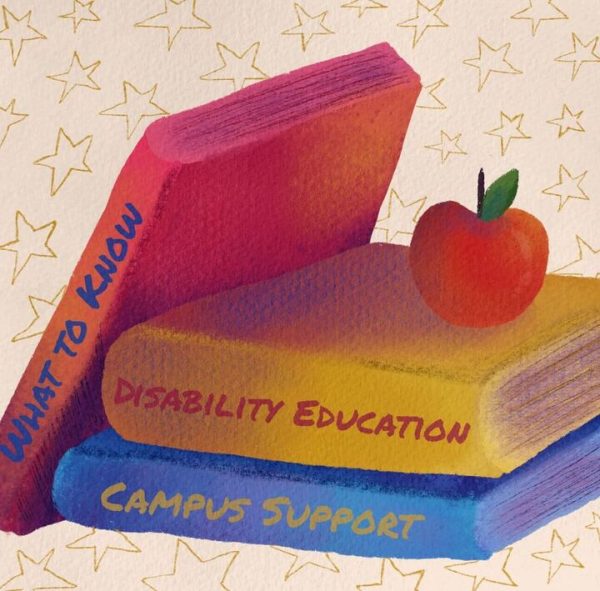Mental health among college athletes
Illustration: “Mental Health Among College Athletes.”
May 18, 2022
People see college athletes hit home runs, score goals, and make baskets, but sometimes people can fail to recognize that they are more than just entertainment.
College athletes are humans too.
Mental health awareness is especially important for college athletes as they strive to be the best players they can be while trying to meet their athletic and educational goals.
Anxiety, depression, eating disorders and stress — to name a few — are issues that can be hard to solve alone. Receiving help through mental health services and resources can ensure that these college athletes don’t have to battle it alone.
CSUN provides students with various services to help with their mental and physical needs. Some of these resources include wellness workshops, individual therapy, couples therapy, group treatment, urgent care and crisis services, and case management services.
All of these services assure confidentiality among their clients as long as it does not involve a serious threat of violence or danger to oneself.
Assistant Director and Clinical Coordinator of University Counseling Services Anne Eipe explained that the initial process of setting up an individual therapy session on campus would require the student to call the counseling services office to schedule an appointment.
Sessions last anywhere from 30 minutes to an hour, and can be scheduled within two weeks of the day a student calls. The availability of these sessions depends on the time of the school year.
“Towards midterms, towards finals, that’s when we get more busy,” Eipe said. “Students are more stressed.”
CSUN has approximately 350 college athletes within the 17 Division I sports the university participates in. Many of these college athletes have the added struggle of misinterpretations and assumptions alongside their academic stress.
“Many people misinterpret student athletes to have ease in achieving success and assume they have natural athletic prowess and grace under pressure,” Amy Rosenblatt, UCS psychologist and liaison to the athletic department, said. “The fast-paced schedules and high expectations that student athletes must maintain can easily lead to anxiety and/or depression, as well as interpersonal and physical distress.”
At the start of each academic year, a team of mental health specialists from UCS and sports performance professionals from the CSUN Athletics Department meets with all 17 sports teams individually, according to Rosenblatt.
The primary focus of the workshops is to address the stigmas surrounding mental illness and how athletes can seek support for their mental health, Rosenblatt noted.
“These meetings were more of an introduction [to the counselors], but I really enjoyed getting to know the counselors, to feel that we knew each other on a personal level,” Blaine Traxel, a pitcher on the baseball team, said.
However, it is not always the student who reaches out to UCS themselves.
“Because there are multiple athletics department staff [members] who have regular contact with student athletes, it is sometimes the case that an athletic trainer, an administrative staff member, or a coach may initiate contact with a UCS counselor due to observing concerns about a particular student athlete’s mental health,” Rosenblatt said.
Rosenblatt went on to explain that identifying mental health concerns can be complex. Common signs of mental distress can include diminished interest in activities, weight gain or loss, feelings of worthlessness, and a frequent lack of concentration.
The COVID-19 pandemic was a difficult time for many, and college athletes had some unique struggles. Some athletes lost their chance to play during their final year due to season cancellations, whereas others gained eligibility and chose to stay another year.
“During the parts of the pandemic when athletic training and competition were prohibited, many student athletes experienced significant social isolation and questioned their identities, including who they are without their sport,” Rosenblatt said.
This was true for women’s water polo goalkeeper, Meghan Lopez, whose season came to a sudden stop.
“Sometime during COVID, I was at the lowest point I’ve ever been. I was depressed, and for the first time, I didn’t know how to fix myself,” Lopez said. “Water polo is such a big part of who I am, but I had forgotten that it wasn’t the only thing that defined me. I was still me, even if I wasn’t playing.”
Being away from the sport that one loves and the culture that surrounds it can be difficult, but forms of self-care outside of the sport exist. Athletes can cope with these problems by finding other hobbies.
An article by Utah State University explained that recent studies show a direct correlation between mental wellness and hobbies. Participating in hobbies can bring benefits such as reduced stress, a decrease in depression and anxiety, improved mental health, enhanced well-being, and improved social connection.
“When I want to relax or take my mind off of the stress that comes with being a student athlete, I turn to my best friend,” Lopez said. “We often hop on a Discord call and play video games or watch shows together.”
Traxel, on the other hand, likes to go on hikes or workout when he has free time.
With so much of their focus directed to their chosen sport, it can be hard for athletes to find hobbies or mental health resources to help with their stress. As Lopez found, being an athlete can sometimes become a person’s whole identity, but it doesn’t have to be the only aspect of their life.
“With our focus being mostly on our athletic self, we sometimes neglect the other parts of who we are,” Lopez said. “So while it is OK to be focused on your athletic self, do not forget to spend time on who you are outside of it.”
